Photo: Emma McIntyre/Getty Images, Courtesy of Recording Academy
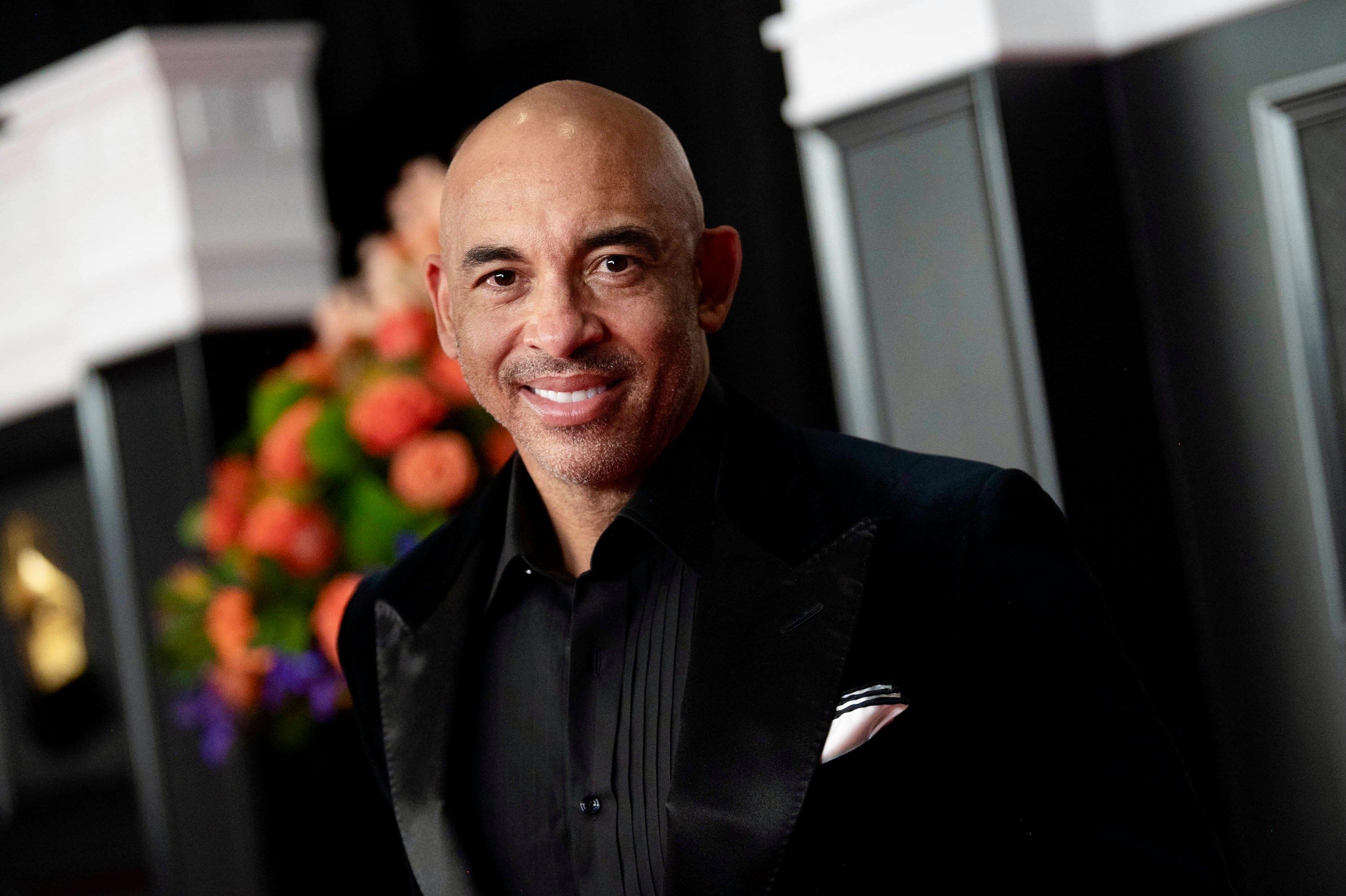
interview
Recording Academy CEO Harvey Mason Jr. On How The New Awards Rules And Guidelines Will Make The 2024 GRAMMYs More Fair, Transparent & Accurate
"We're always going to try and listen to the music community," Harvey Mason jr., CEO of the Recording Academy, says about the latest GRAMMY Awards rule amendments ahead of the 2024 GRAMMYs.
Every year, the Recording Academy continues to strive for fairness and transparency in the annual GRAMMY Awards voting process, and the 2024 GRAMMYs are no different.
The Recording Academy has updated the GRAMMY Awards Rules and Guidelines for the 2024 GRAMMYs, officially known as the 66th GRAMMY Awards, to implement a number of important amendments ahead of Music's Biggest Night next year. These recent changes include the three newly announced GRAMMY categories; the migration of Producer Of The Year, Non-Classical and Songwriter Of The Year, Non-Classical, both existing categories, to the General Field; and much more.
For a deeper look at all the big changes occurring at the 2024 GRAMMYs, Recording Academy CEO Harvey Mason jr. chatted with GRAMMY.com to discuss the decision-making process behind the latest rule amendments and how the new rules and guidelines even the playing field for music people worldwide.
View the official GRAMMY Awards Rules and Guidelines Book for the 2024 GRAMMYs and visit the GRAMMY Award Update Center for a list of real-time changes to the GRAMMY Awards process.
Artificial intelligence (AI) is a massive topic of discussion and debate in every industry today. The new GRAMMY Awards rules state, “Only human creators are eligible to be submitted for consideration for, nominated for, or win a GRAMMY Award.” Why was it important that the GRAMMYs process account for this emerging technology and its impact on human artistic expression?
It's important because AI is going to absolutely, unequivocally have a hand in shaping the future of our industry. The idea of being caught off guard by it and not addressing it is unacceptable.
Not knowing exactly what it's going to mean or do in the next months and years gives me some pause and some concerns. But I absolutely acknowledge that it's going to be a part of the music industry and the artistic community and society at large.
So, we have to start planning around that and thinking about what that means for us. How can we adapt to accommodate? How can we set guardrails and standards? There are a lot of things that need to be addressed around AI as it relates to our industry.
We actually held a summit recently with industry leaders, tech entrepreneurs, streaming platforms, and people from the artist community. We talked about the subject and discussed how the Recording Academy can be helpful: how we can play a role and the future of AI in music.
Can you speak to the AI-related protocols instituted for the 2024 GRAMMYs?
At this point, we are going to allow AI music and content to be submitted, but the GRAMMYs will only be allowed to go to human creators who have contributed creatively in the appropriate categories. If there's an AI voice singing the song or AI instrumentation, we'll consider it. But in a songwriting-based category, it has to have been written mostly by a human. Same goes for performance categories – only a human performer can be considered for a GRAMMY.
If AI did the songwriting or created the music, that's a different consideration. But the GRAMMY will go to human creators at this point.
Recording Academy CEO Harvey Mason jr. | Michael Kovac
The number of GRAMMY Award fields has been consolidated from 26 to 11. How does this open up the process rather than close it off?
This gives so many voters the opportunity to actually use the full 10 votes that they have under the 10-3 voting system. The idea was to make sure voters were voting in categories and genres they had expertise or experience working in, as opposed to voters coming in, looking at the ballot, and just tracking names or voting for people that they thought were interesting or voting for music they had just heard, but did not fairly evaluate.
The 10-3 voting system restricts the number of Fields a voter can enter to three, and within those three Fields, a voter can cast 10 votes. What we were hearing from the community was that people were not able to use their full 10 votes because many of the Fields only had one, two or three categories in those Fields. So, depending on how you picked your three Fields, there was a potential that you would only be able to cast three votes total.
We're leaning into the idea of utilizing our expertise and enabling our peers to really evaluate and vote in categories and genres that they are working in and are experts in.
The existing categories of Songwriter of the Year, Non-Classical and Producer of the Year, Non-Classical have been moved to the general field, what's widely known as the Big Four categories. Why did the Recording Academy decide to make this change? What will be the impact of this change?
The Big Four is now the Big Six. Songwriting and producing are some of the fundamental building blocks of our industry — in addition to, of course, performing and recording.
We feel this change is an opportunity to allow our full voting membership to participate. We have done a lot of work around qualifying and requalifying our voters, and inviting a diverse group of voters to the table in our last three membership classes.
We are excited that our entire voting body will be able to contribute to such important categories like Songwriter Of The Year and Producer Of The Year. Again, these are such important parts of our Awards process. But bigger than that, they're an important part of the music ecosystem.
Since these categories are not genre-specific, and they are across many different genres, we felt it was responsible to put them in the General Field so everyone could vote for these important awards.
At the 2022 GRAMMYs and 2023 GRAMMYs, the number of nominees in the General Field went from eight to 10. Now, at the upcoming 2024 GRAMMYs, that number is going back to eight. Can you explain this change and how it's a positive for the overall GRAMMYs process?
We're always going to try and listen to the music community. When they have suggestions or ideas, we're going to react quicker than we ever have in the past. This change is a result of that.
Two years ago, we felt that expanding to 10 nominees would be more inclusive, allowing us to recognize a greater variety of genres and artists; that expansion was instituted.
Now, with the dynamic realignment between our diverse membership and our Awards process, we felt 10 was too many. We want to make sure the award is inclusive enough, while still being prestigious and exclusive.
These are all things that we take into consideration as an Academy — from our membership to our Trustees to our voters — when trying to find the sweet spot in terms of the number of nominees. We don't know if it's five or 10 or eight, but we're going to go with eight next year.
If it feels wrong, or if there's another way to improve the process in subsequent years, we'll entertain that and move forward as best as we can to try and make sure we get this right and honor music.
In the Album Of The Year category, the baseline for earning a nomination has been raised to 20 percent of the album's playing time for credited artists, featured artists, songwriters, producers, engineers, mixers, and mastering engineers. What necessitated this change, and how does this even the playing field?
Similarly, we're trying to find the sweet spot of how to make sure we honor the key music creators who have dedicated so much time and effort to making the Album Of The Year.
Is 20 percent the right number? Is 33 percent the right number? Is zero the right number? I don't have the definite answer other than our committees voted at 20 percent, the Trustees approved 20 percent, and we're going to go with 20 percent and see how that feels to our members and community.
If it feels too exclusive, we can adjust and lower the percentage threshold. Or, if it feels like we have too many nominees and it's not exclusive enough, then we can adjust again.
In the big picture, how will these amendments make the GRAMMYs process more open, transparent and fair?
Each and every amendment was created exactly with this in mind: openness, transparency, fairness. Every process that we undertake — every amendment or change to our Awards process that gets initiated — is done to make the process more fair, transparent and accurate. And when we find things that can be improved, we're in the position now to be able to make those changes, thankfully.
Everything you're seeing now is with the goal of being better and more accurate, honoring more music fairly and in relevant fashion, and making sure the process is transparent, fair and working.
2024 GRAMMYs: 4 Things To Know About The New Categories & Changes

Photo: AyseDeniz
feature
Classical Music’s AI Maestro: How AyseDeniz Brings Chopin "Back To Life"
Pianist and Composer AyseDeniz was always a fan of classical music. With the help of artificial intelligence, the musician was able to "interact" with composers like Frédéric Chopin; she shares her thoughts on AI applications in music.
In May, the globally-renowned pianist and composer AyseDeniz Gokcin conducted an experiment in Los Angeles.
In front of a room full of people at the conference CogX, AyseDeniz sat at a piano and played three short excerpts of music. The first piece was by legendary Polish composer Frédéric Chopin, the second was an original composition in the style of Chopin, and the third was music she generated using AI to sound like Chopin. AyseDeniz then asked the room to guess which one was real. While a few of the conference attendees guessed correctly, the vast majority did not.
One of AyseDeniz’s favorite composers, Chopin was renowned for merging elements of Italian opera with Polish music; the sound captivated AyseDeniz at a young age. Like AyseDeniz, Chopin was a child prodigy who was equally passionate about performing and educating. Her goal at CogX — a conference that explores how artificial intelligence and other emerging technology impacts society — was to use AI to get people excited about Chopin and classical piano music in general.
Learn more: Artificial Intelligence at the Recording Academy
"I want people to see how one piece of music can be stylistically different from another, and understand what makes someone like Chopin original," AyseDeniz tells GRAMMY.com. The artist adds that, through analytical listening, people can ascertain whether something is "on brand, or if it's off."
And while AyseDeniz didn't originally plan on using AI to encourage interest in classical music, "I always wanted a way to bring back dead composers somehow."
She took that goal even further by feeding articles about Chopin and other text into a custom GPT. The result was a virtual Chopin who can verbally respond to questions in real time. During a private concert dedicated to Chopin, AyseDeniz's virtual Chopin spoke about his music and life during a panel discussion.
"It was intense and a little scary," AyseDeniz says. "People sent me messages afterward that they were having an existential crisis."
Her presentation is called "Classical Regenerated," a show that presents AI-generated compositions alongside original works from the masters. AyseDeniz also interacts with AI agents of composers she’s trained, allowing them to answer questions from the audience. As with her CogX lecture, "Classical Regenerated" is designed as both a tribute to her favorite composers and a way to get people excited about classical music.
AyseDeniz isn't alone in her explorations of technology and classical compositions. The classical music world — and music industry at large — is grappling with AI in many ways. At MIT's Opera of the Future group, composer and professor Tod Machover uses AI to crowdsource sounds from residents of various cities to create "City Symphonies" and also helped create an experimental radio station that plays songs generated by AI.
Earlier this year at Symphony San Jose, cellist Yves Dhar "battled" a hologram version of himself playing a piece called "Automation" by composer Adam Schoenberg. The hologram was constructed ahead of the performance using an AI model that had been trained with Schoenberg’s entire body of work.
Read more: AI And Copyright: How The Recording Academy Is Leading The Conversation To Protect Music Creators
AysheDeniz — pronounced EYE-SHA deh-NEESE — wasn’t always interested in technology. She grew up in the Turkish capital of Ankara, where her mother frequently took her to hear live music. Her parents had a large collection of classical piano CDs at home, but her father also loved the Everly Brothers, Cat Stevens, the Beatles, Pink Floyd, and musicals like "Cats." She remembers dancing to Elvis Presley with her dad as a young child.
She began playing piano around age 5 and performed her first solo show — Bach’s Keyboard Concerto No. 5 — with an orchestra at 9 years old. She took piano seriously and was very disciplined; when she woke up every morning, she went straight to the piano. She would hear a piece and then practice it for four hours a day.
AysheDeniz's piano journey wasn’t easy: she obsessed over mistakes and suffered from stage fright. She was strict with herself and didn’t want piano to be fun. Someone once asked her to play the Star Wars theme and she refused. At 7, she was in the same class as 14 year olds, and soon had to join classes with adults.
In her teens, she started to relax and have more fun: she listened to the Red Hot Chili Peppers, Metallica, System Of A Down, and the Turkish rock band Athena. She dyed her hair pink and would listen to Eminem before she played Beethoven. But her commitment to the piano was steadfast: AyseDeniz went on to study at the Eastman School and the Royal Academy of Music.
She’s gone on to perform in more than two dozen countries, has more than 600K fans online, is a GRAMMY voting member, was listed by Encyclopaedia Britannica, alongside Adele, Lil Nas X, and Lorde, as one of the 20 under 40 Young Shapers of the Future of Music.
But something changed in 2009 when AyseDeniz began pursuing her master’s degree. She was shocked when she first learned that people could buy orchestra sounds from sample libraries, or craft a score using a midi keyboard and layered sounds on a computer rather than hire a trained pianist. Earlier this year, she developed a specific curiosity around AI technology, and began asking questions about how it could be used with music.
This curiosity eventually led to the development of her "Classical Regenerated" presentation earlier this year, which has put her in the center of the conversation around how AI can interact with classical music.
As an "AI Music Producer," AyseDeniz performed her interactive AI-driven shows this September at the Kennedy Center Creativity & Tech Summit, will perform in October at the TED AI conference in San Francisco — which will also feature Recording Academy CEO Harvey Mason Jr. — and at the Google campus in November.
AyseDeniz is particularly excited to present her AI tribute to Mozart, in which she plays piano with a robot AI orchestra of a piece she generated in the style of Mozart using AI, as an AI-generated Mozart in a video conducts her in real time.
"I can’t change the future or change how technology develops. Not even Taylor Swift can do that," AyseDeniz says. "The only way is to adapt. I was like, I want to jump into this, and have humans be present in this process."
For years, the dominant narrative was that the classical genre was a dying breed. However, recent surveys show a post-Covid uptick in orchestra subscriptions and suggest a slight uptick in the genre’s popularity. Artists like AyseDeniz and developers think that AI is one tool that can potentially help revitalize the classical music world.
Google has led projects like SingSong, which generates accompaniments for recorded vocal melodies, and MusicLM, a text-to-music generator. WavTool, a recently released AI-powered music production platform, enables users to create music via text prompts using OpenAI’s GPT-4.
Earlier this year, as the composer and vocalist Jen Wang performed Alvin Lucier’s 1971 piece "The Duke of York" at the Monk Space in Los Angeles, she sang along with a digital rendition of her voice, synthesized by artificial intelligence generated by a R.A.V.E. — a Realtime Audio Variational autoEncoder — an algorithm that compresses audio signals and extracts the sound’s features to attempt to resynthesize it.
The big question is whether AI poses a real threat to classical music, or any musical genre. In May, violinist Daniel Kurganov posted an AI-generated piece of violin music on his YouTube channel with the headline "Did AI Just Kill Classical Music?" in an attempt to answer his own questions about nuance and beauty, such as "How do we understand what good string playing is? How much of it is mystery, impossible to teach or understood in explicit terms? Can it only be emulated and passed on from one emotional being to the next?"
AyseDeniz continues to work on original piano compositions with no AI involved, but she is keen to see where new tools will lead her in her new role as an AI music producer. She hopes to add physical elements to her show, with moving keys, holograms and more AI-trained classical composers that can present shows with her in real time. Eventually, she hopes to play alongside a robot orchestra and jam with an AI pianist.
Latest News & Exclusive Videos

15 Must-Hear Albums In October: Halsey, Samara Joy, Pixies & More

Classical Music’s AI Maestro: How AyseDeniz Brings Chopin "Back To Life"
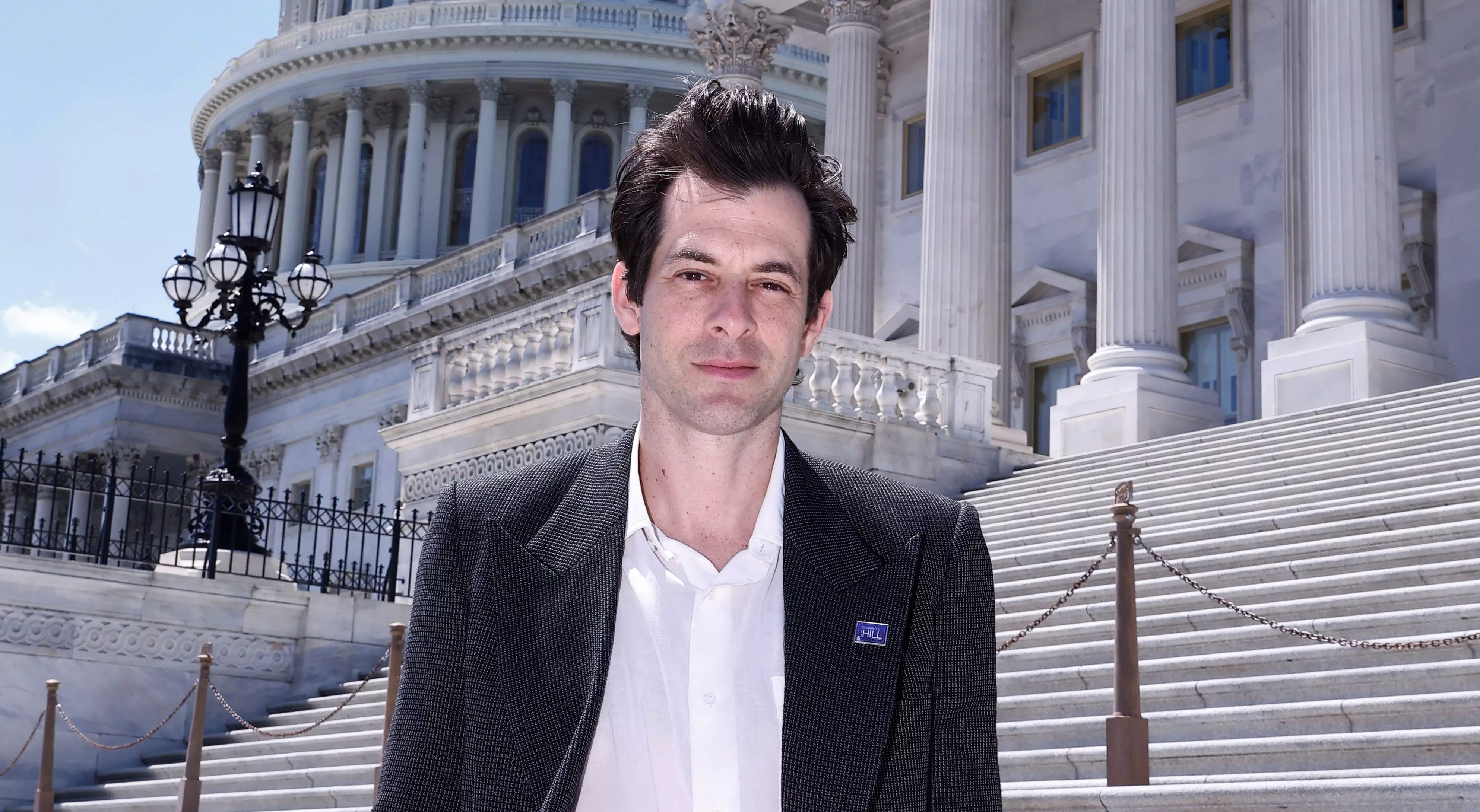
4 Ways Mark Ronson Has Advocated For The Music Community & Beyond
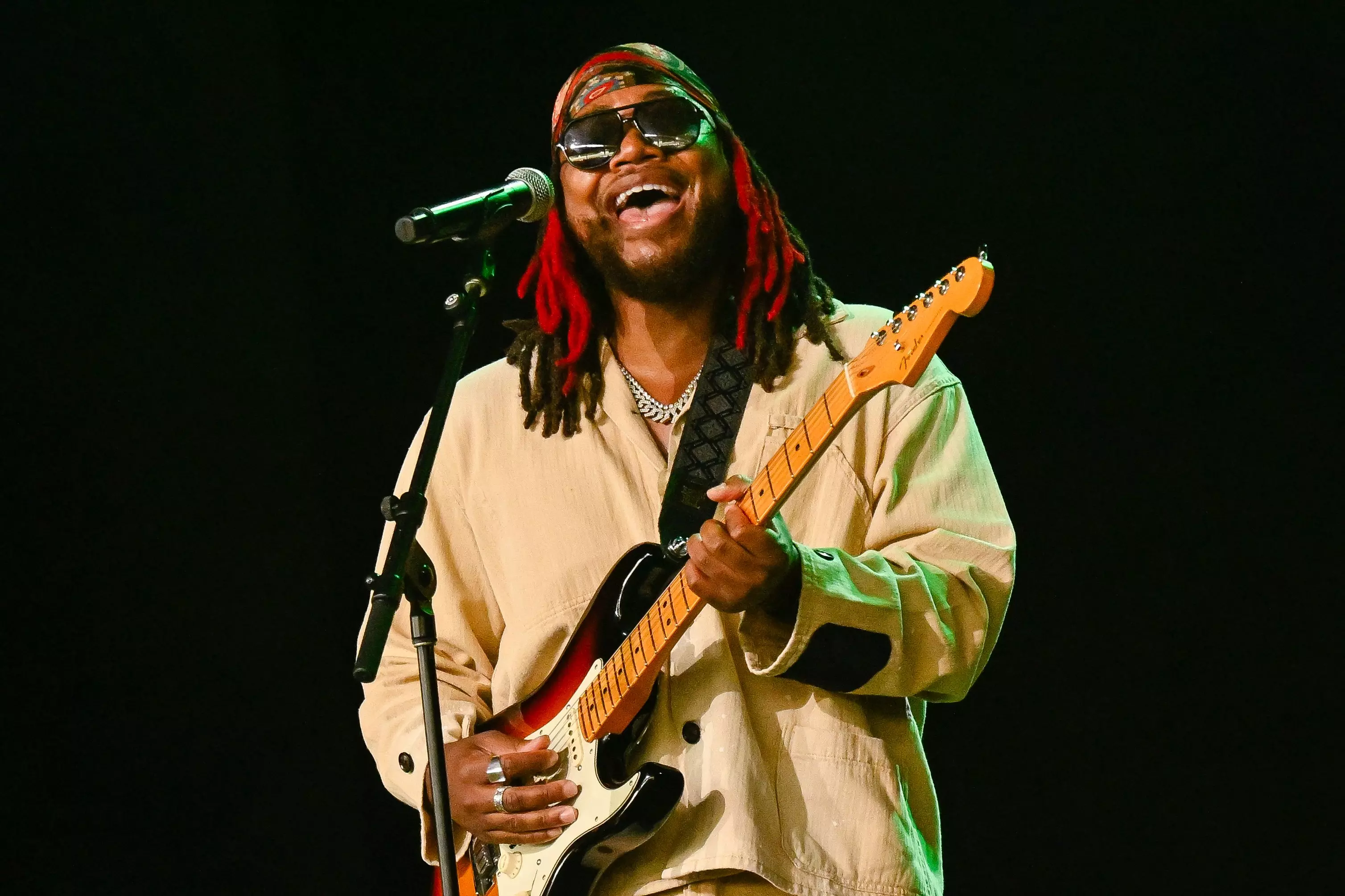
Leon Thomas III Talks Unleashing 'Mutt' And Pushing R&B Forward
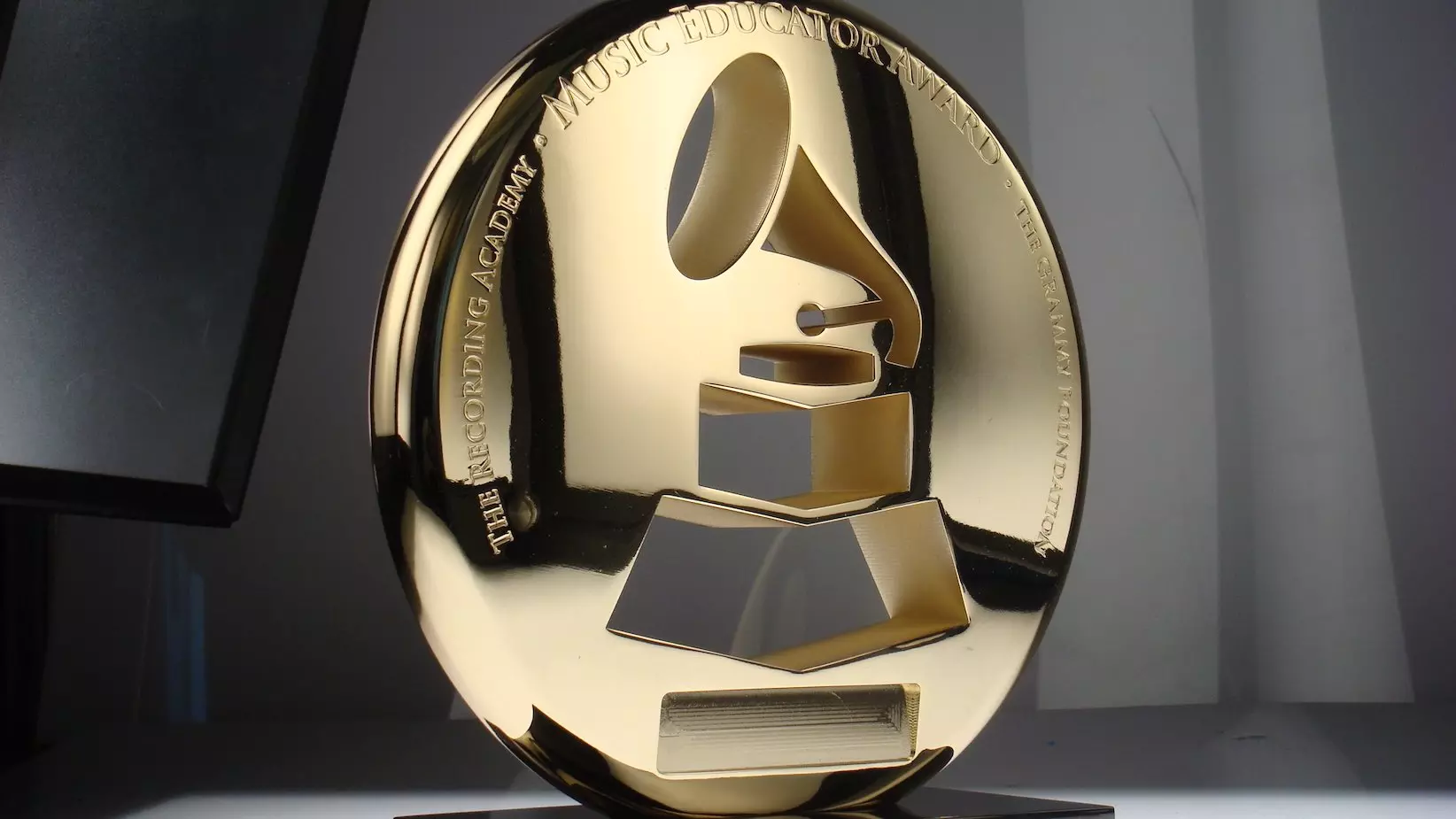
25 Semifinalists Announced For The 2025 Music Educator Award
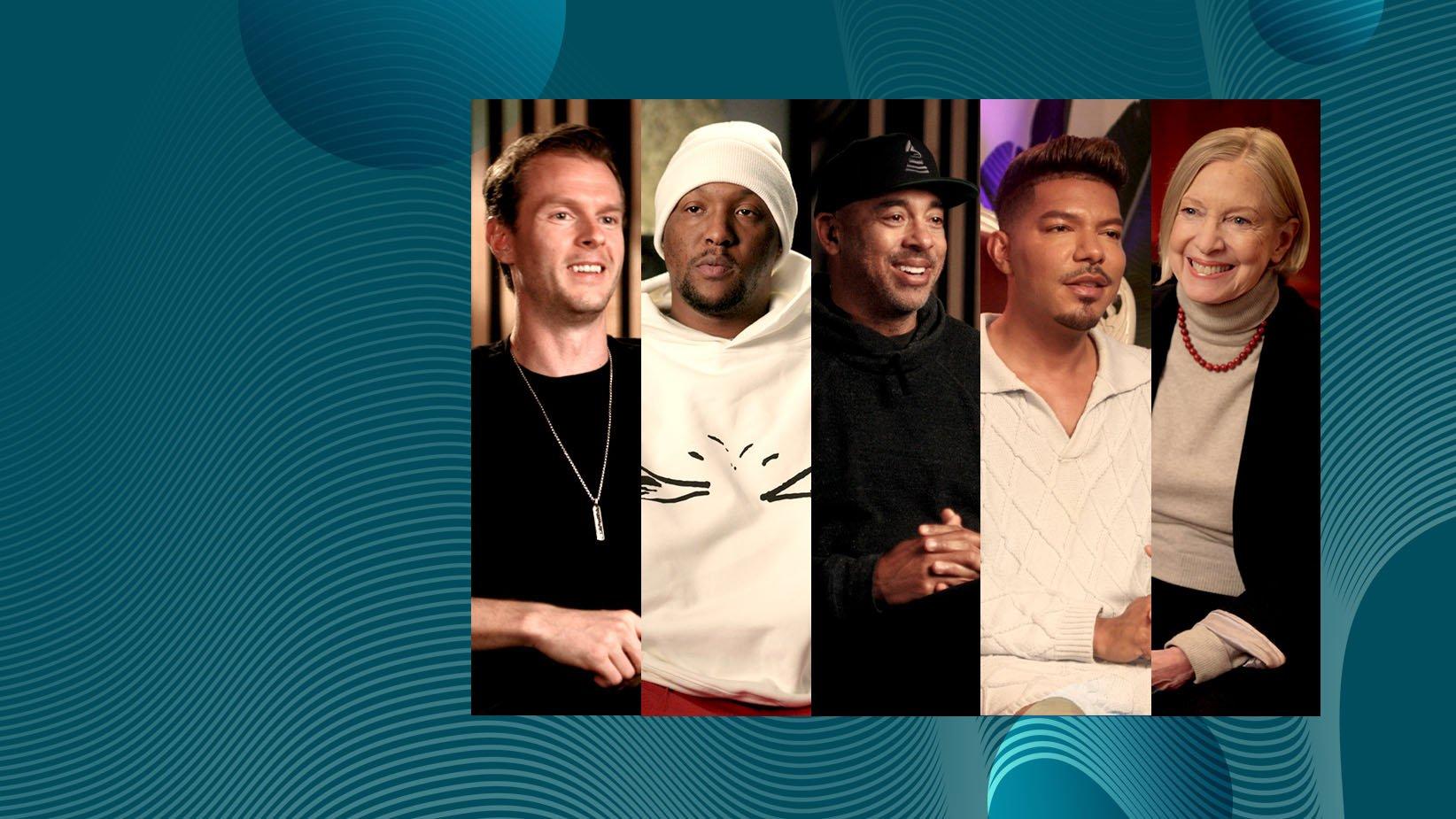
Photos Courtesy of the Recording Academy
news
The New GRAMMY GO Music Production Course Is Now Open: Featuring GRAMMY Winners Hit-Boy, CIRKUT, Judith Sherman & More
Enrollment is now open for GRAMMY GO's new specialization, "Music Production: Crafting Award-Worthy Songs," featuring appearances by GRAMMY winners and nominees. Learn music production and creative strategies from today's industry leaders.
Editor’s Note: Updated to add the Instagram Live video featuring Harvey Mason jr. and Stevie Mackey.
The Recording Academy continues its mission to empower music's next generation with the launch of its second specialization in the GRAMMY GO platform: "Music Production: Crafting Award-Worthy Songs."
This new course, a partnership between the Recording Academy and leading online learning platform Coursera, aims to bolster the technological and audio skills of music producers of all levels. The course, taught by Howard University professor and GRAMMY nominee Carolyn Malachi, features appearances by three-time GRAMMY winner and rap icon Hit-Boy, chart-topping and GRAMMY-winning producer/songwriter CIRKUT, artist and celebrity vocal coach Stevie Mackey, five-time GRAMMY nominee and Recording Academy CEO Harvey Mason jr., and 15-time GRAMMY winner Judith Sherman.
Enrollment for "Music Production: Crafting Award-Worthy Songs" is open now.
Mixing a unique blend of theory and practice, the course teaches music creators of all levels the advanced skills and tools to develop the mindset and confidence of an experienced producer and produce songs of the highest industry standards across all genres. Explore the wide-ranging roles of a music producer, develop critical listening and analysis skills, and master the technical aspects to create music and compositions that cut through the noise. The course's applied learning approach allows learners to sharpen their pre-production skills, utilize Digital Audio Workstations (DAWs) effectively, and produce vocals, instrumentals and samples collaboratively. Through critical listening exercises and discussions, learners will refine their abilities to deliver professional-quality demos.
To celebrate the launch, the Recording Academy hosted an Instagram Live session on Tuesday in which guests Harvey Mason jr. and Stevie Mackey discussed the evolving role of music producers, strategies for working with artists, key elements of top-notch productions, common mixing mistakes, tips for keeping the creative process fresh, and enrollment details for the course.
Building on the success of its first specialization, "Building Your Audience for Music Professionals," GRAMMY GO continues to offer industry-focused education tailored for emerging and established music creators and professionals alike. The innovative platform provides learners with real-time insights from leading music industry figures, ensuring the content remains practical and up to date. GRAMMY GO will also serve as an essential tool in the Recording Academy's global expansion into Africa and the Middle East, empowering music creators through enhanced training, bridging knowledge gaps, and fostering connections within the global music community.
Launched in April in partnership with Coursera, GRAMMY GO is the Recording Academy's first creator-to-creator platform, offering innovative courses tailored for both emerging and established music professionals. The initiative accelerates the Academy's global mission and reinforces its commitment to music education, providing a seamless bridge between all Academy initiatives.
Learn more about GRAMMY GO and the "Music Production: Crafting Award-Worthy Songs" and "Building Your Audience for Music Professionals" specializations.
Watch the Instagram Live session with Harvey Mason jr. and Stevie Mackey in full below:
More Music Education News & Initiatives

25 Semifinalists Announced For The 2025 Music Educator Award
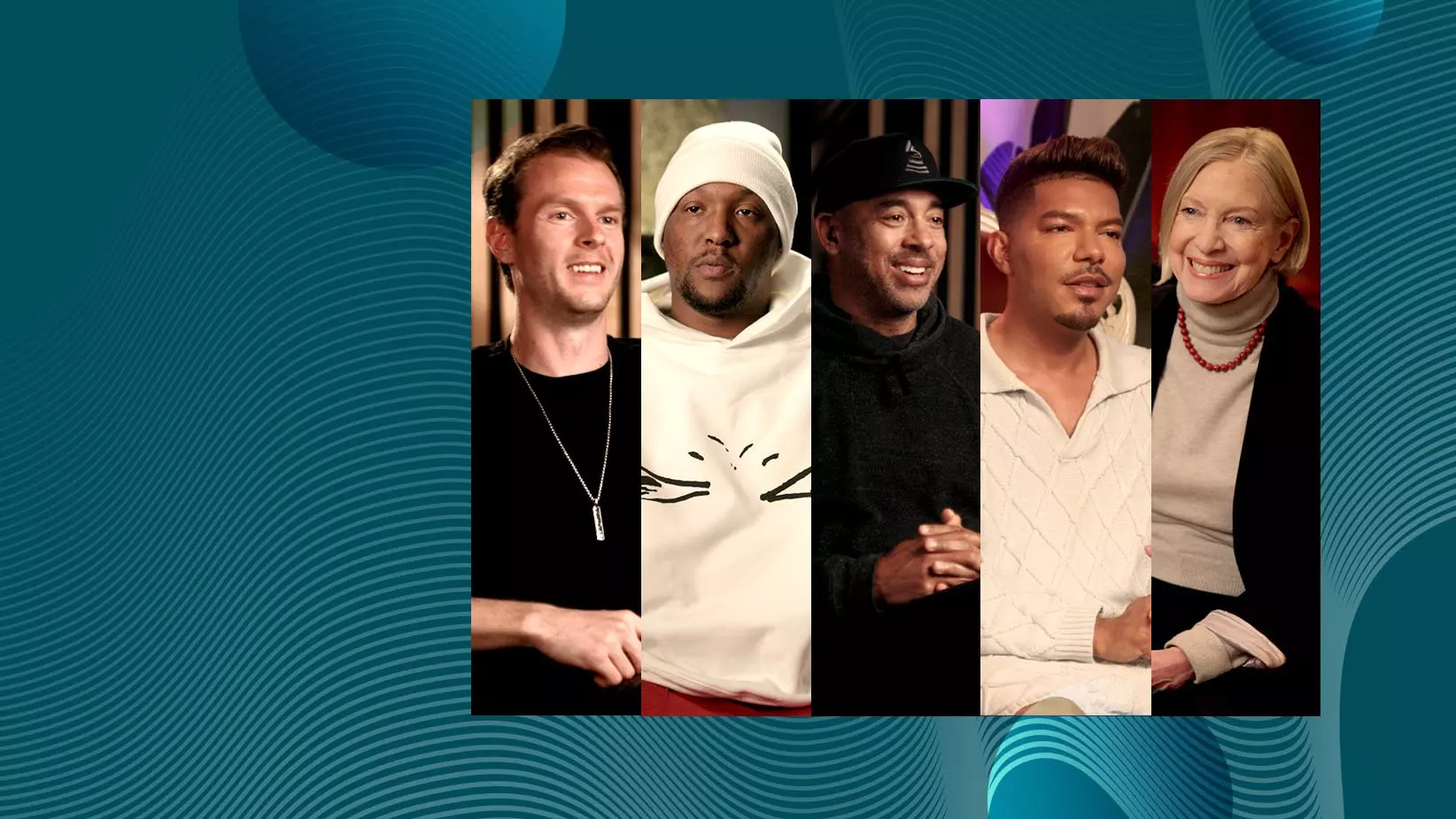
The New GRAMMY GO Music Production Course Is Now Open: Featuring GRAMMY Winners Hit-Boy, CIRKUT, Judith Sherman & More
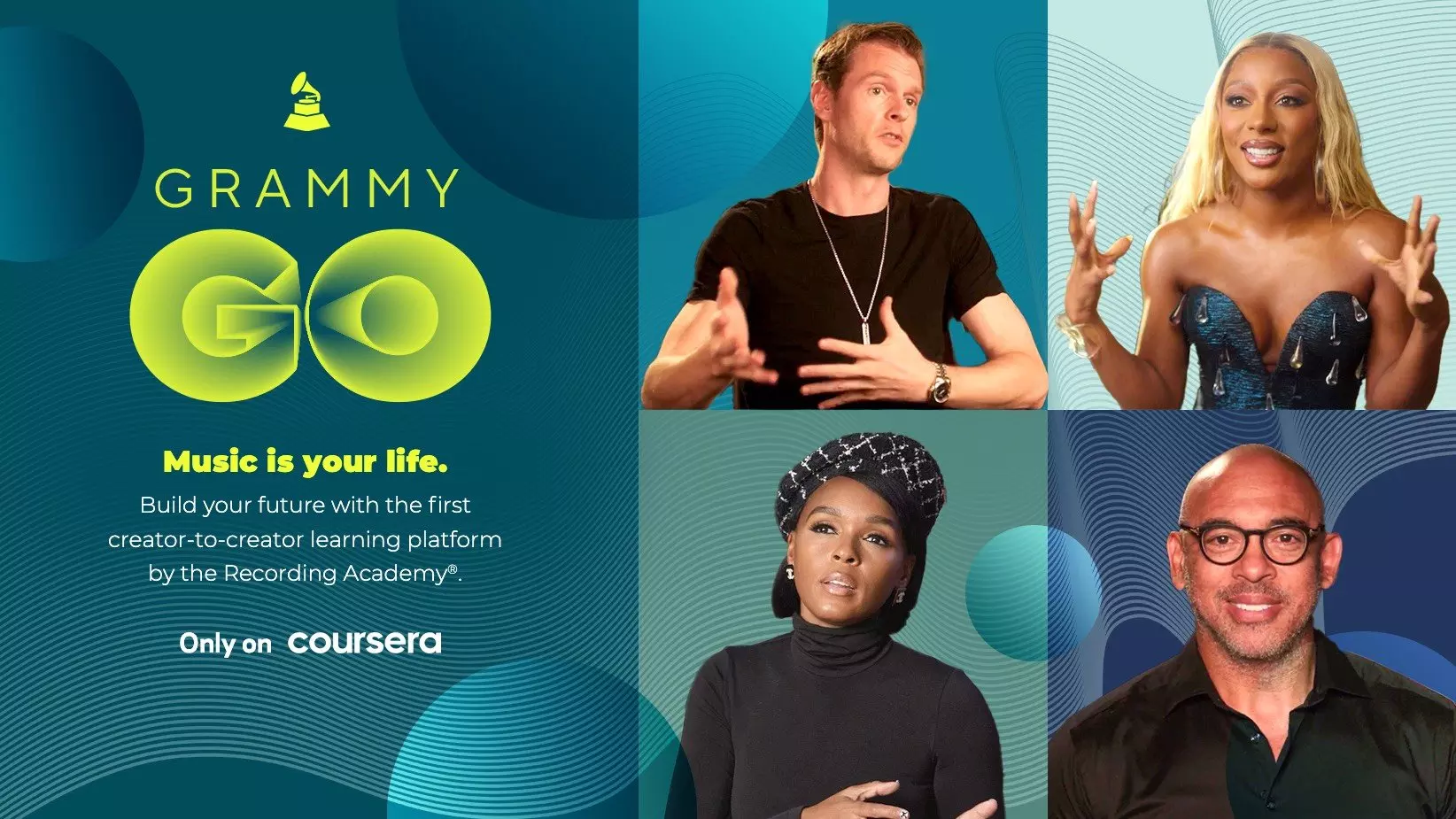
Recording Academy & Coursera Partner To Launch GRAMMY GO Online Learning Initiative

25 Semifinalists Announced For The 2024 Music Educator Award
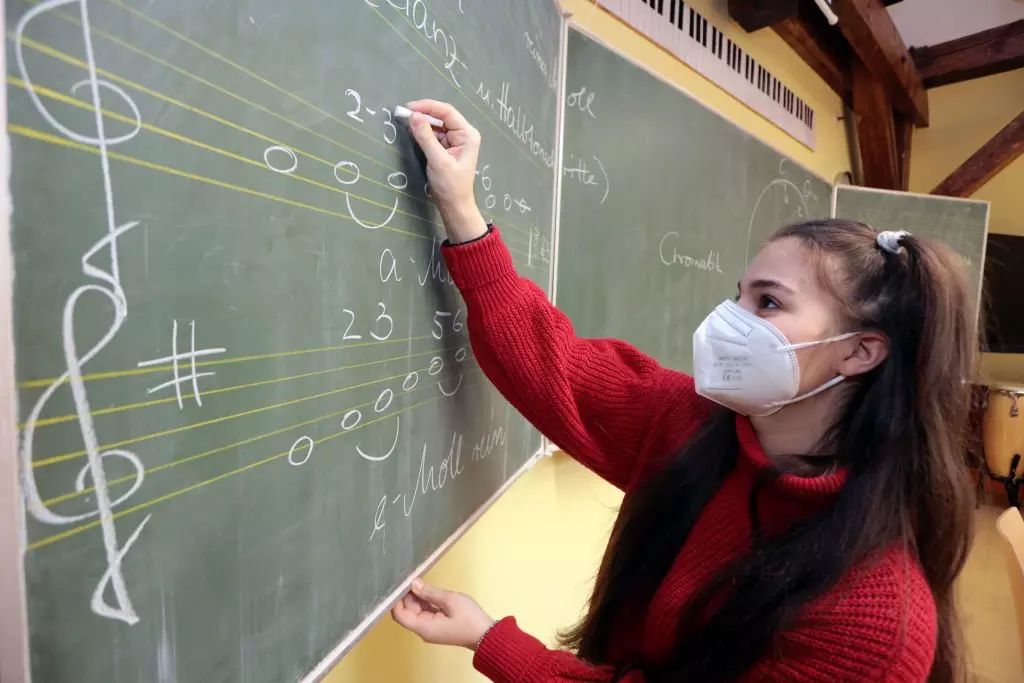
5 Music Teachers Share The Transformative Power Of Music Education
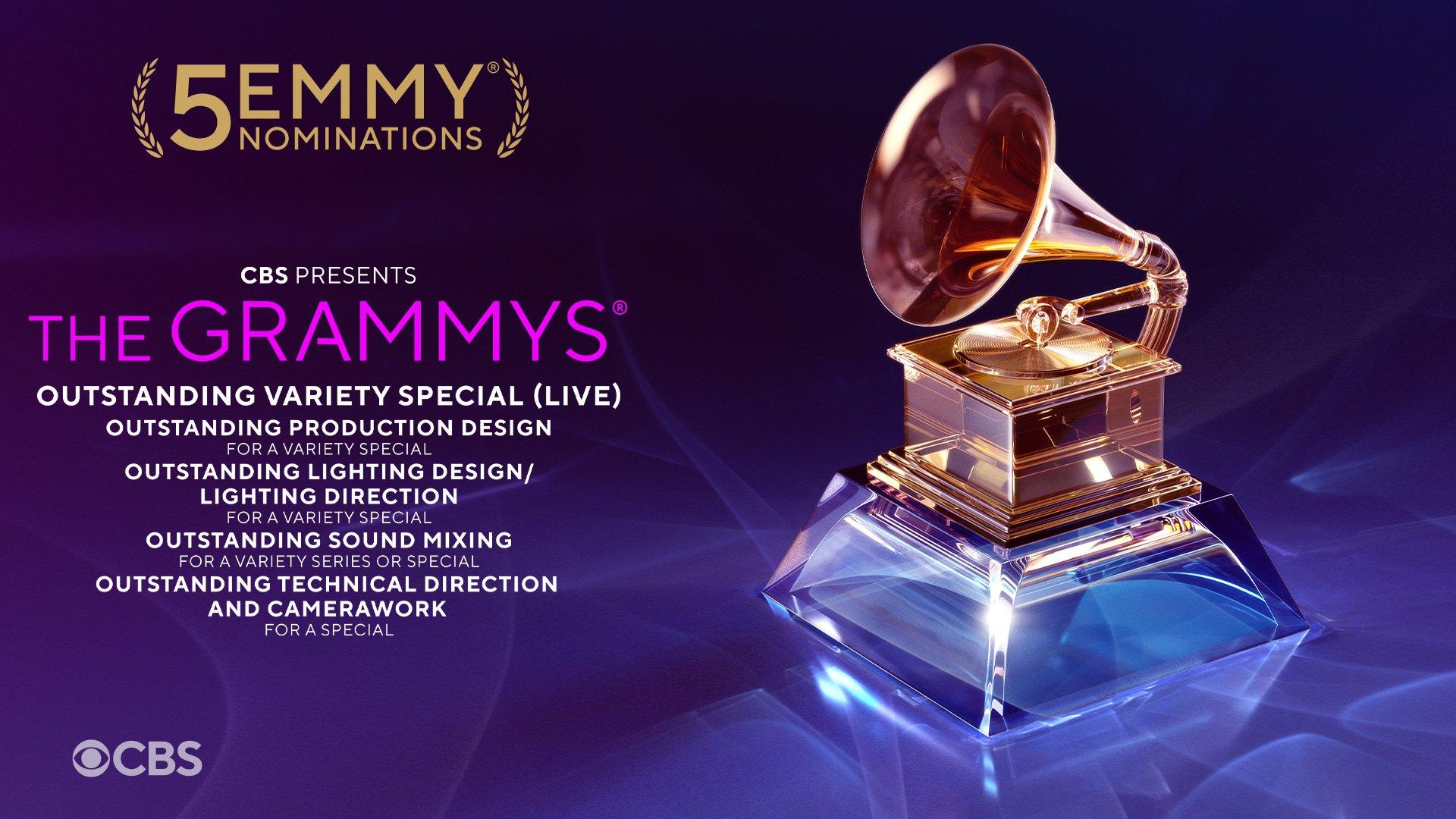
Graphic Courtesy of CBS
news
The 2024 GRAMMYs Have Been Nominated For 5 Emmys: See Which Categories
The 2024 GRAMMYs telecast is nominated for Outstanding Variety Special (Live), Outstanding Production Design For A Variety Special, and three more awards at the 2024 Emmys, which take place Sunday, Sept. 15.
It’s officially awards season! Today, the nominees for the 2024 Emmys dropped — and, happily, the 2024 GRAMMYs telecast received a whopping five nominations.
At the 2024 Emmys, the 2024 GRAMMYs telecast is currently nominated for Outstanding Variety Special (Live), Outstanding Production Design for a Variety Special, Outstanding Lighting Design/Lighting Direction for a Variety Special, Outstanding Sound Mixing for a Variety Series or Special, and Outstanding Technical Direction and Camerawork for a Special.
Across these categories, this puts Music’s Biggest Night in a friendly head-to-head with other prestigious awards shows and live variety specials, including the Super Bowl LVIII Halftime Show starring Usher as well as fellow awards shows the Oscars and the Tonys.
2024 was a banner year for the GRAMMYs. Music heroes returned to the spotlight; across Categories, so many new stars were minted. New GRAMMY Categories received their inaugural winners: Best African Music Performance, Best Alternative Jazz Album and Best Pop Dance Recording. Culture-shaking performances and acceptance speeches went down. Those we lost received a loving farewell via the In Memoriam segment.
The 2025 GRAMMYs will take place Sunday, Feb. 2, live at Crypto.com Arena in Los Angeles and will broadcast live on the CBS Television Network and stream live and on demand on Paramount+. Nominations for the 2025 GRAMMYs will be announced Friday, Nov. 8, 2024.
For more information about the 2025 GRAMMY Awards season, learn more about the annual GRAMMY Awards process, read our FAQ (Frequently Asked Questions) section, view the official GRAMMY Awards Rules and Guidelines, and visit the GRAMMY Award Update Center for a list of real-time changes to the GRAMMY Awards process.
GRAMMY News, Performances & Highlights
2025 GRAMMYs To Take Place Sunday, Feb. 2, Live In Los Angeles; GRAMMY Awards Nominations To Be Announced Friday, Nov. 8, 2024
How To Vote In The 2025 GRAMMYs: A Complete First Round Voting Guide For GRAMMY Voters
GRAMMY Awards Updates For The 2025 GRAMMYs: Here's Everything You Need To Know About GRAMMY Awards Categories Changes & Eligibility Guidelines
Recording Academy Renames Best Song For Social Change Award In Honor Of Harry Belafonte
2025 GRAMMYs: Watch Troye Sivan, Coco Jones, Khalid, Mickey Guyton & More Discuss The “Honor” And Importance Of GRAMMY Voting
Who Are The Top GRAMMY Awards Winners Of All Time? Who Has The Most GRAMMYs?
2024 GRAMMYs: See The Full Winners & Nominees List
How Much Is A GRAMMY Worth? 7 Facts To Know About The GRAMMY Award Trophy
The 2024 GRAMMYs Have Been Nominated For 5 Emmys: See Which Categories
10 Must-See Moments From The 2024 GRAMMYs: Taylor Swift Makes History, Billy Joel & Tracy Chapman Return, Boygenius Manifest Childhood Dreams
Watch All The Performances From The 2024 GRAMMYs: Tracy Chapman & Luke Combs, Billie Eilish, Olivia Rodrigo & More
2024 GRAMMYs: Miley Cyrus Celebrates "Flowers" GRAMMY Win With Jubilant Performance
2024 GRAMMYs: Dua Lipa Debuts "Training Season" & Slays "Houdini" In Mesmerizing Opening Performance
2024 GRAMMYs: Taylor Swift Makes GRAMMY History With Fourth Album Of The Year Win For 'Midnights'
2024 GRAMMYs: Luke Combs & Tracy Chapman Team Up For A Surprise Duet Version Of "Fast Car"
2024 GRAMMYs: Billie Eilish Wins GRAMMY For Song Of The Year For "What Was I Made For?" From The 'Barbie' Soundtrack
2024 GRAMMYs: Miley Cyrus Wins The GRAMMY For Record Of The Year for "Flowers"
Relive The 2024 GRAMMYs Red Carpet: Interviews With Dua Lipa, Ice Spice & More
10 Acceptance Speeches That Made Us Laugh, Cry, & Smile At The 2024 GRAMMYs
Big First Wins At The 2024 GRAMMYs: Karol G, Lainey Wilson, Victoria Monét & More
13 Moments From The 2024 GRAMMYs You Might Have Missed
2024 GRAMMYs Red Carpet Fashion Highlights: Taylor Swift, Dua Lipa, Billie Eilish, Olivia Rodrigo, boygenius & More

Photo: Jathan Campbell
list
How Much Is A GRAMMY Worth? 7 Facts To Know About The GRAMMY Award Trophy
Here are seven facts to know about the actual cost and worth of a GRAMMY trophy, presented once a year by the Recording Academy at the GRAMMY Awards.
Since 1959, the GRAMMY Award has been music’s most coveted honor. Each year at the annual GRAMMY Awards, GRAMMY-winning and -nominated artists are recognized for their musical excellence by their peers. Their lives are forever changed — so are their career trajectories. And when you have questions about the GRAMMYs, we have answers.
Here are seven facts to know about the value of the GRAMMY trophy.
How Much Does A GRAMMY Trophy Cost To Make?
The cost to produce a GRAMMY Award trophy, including labor and materials, is nearly $800. Bob Graves, who cast the original GRAMMY mold inside his garage in 1958, passed on his legacy to John Billings, his neighbor, in 1983. Billings, also known as "The GRAMMY Man," designed the current model in use, which debuted in 1991.
How Long Does It Take To Make A GRAMMY Trophy?
Billings and his crew work on making GRAMMY trophies throughout the year. Each GRAMMY is handmade, and each GRAMMY Award trophy takes 15 hours to produce.
Where Are The GRAMMY Trophies Made?
While Los Angeles is the headquarters of the Recording Academy and the GRAMMYs, and regularly the home of the annual GRAMMY Awards, GRAMMY trophies are produced at Billings Artworks in Ridgway, Colorado, about 800 miles away from L.A.
Is The GRAMMY Award Made Of Real Gold?
GRAMMY Awards are made of a trademarked alloy called "Grammium" — a secret zinc alloy — and are plated with 24-karat gold.
How Many GRAMMY Trophies Are Made Per Year?
Approximately 600-800 GRAMMY Award trophies are produced per year. This includes both GRAMMY Awards and Latin GRAMMY Awards for the two Academies; the number of GRAMMYs manufactured each year always depends on the number of winners and Categories we award across both award shows.
Fun fact: The two GRAMMY trophies have different-colored bases. The GRAMMY Award has a black base, while the Latin GRAMMY Award has a burgundy base.
Photos: Gabriel Bouys/AFP via Getty Images; Frederick M. Brown/Getty Images
How Much Does A GRAMMY Weigh?
The GRAMMY trophy weighs approximately 5 pounds. The trophy's height is 9-and-a-half inches. The trophy's width is nearly 6 inches by 6 inches.
What Is The True Value Of A GRAMMY?
Winning a GRAMMY, and even just being nominated for a GRAMMY, has an immeasurable positive impact on the nominated and winning artists. It opens up new career avenues, builds global awareness of artists, and ultimately solidifies a creator’s place in history. Since the GRAMMY Award is the only peer-voted award in music, this means artists are recognized, awarded and celebrated by those in their fields and industries, ultimately making the value of a GRAMMY truly priceless and immeasurable.
In an interview featured in the 2024 GRAMMYs program book, two-time GRAMMY winner Lauren Daigle spoke of the value and impact of a GRAMMY Award. "Time has passed since I got my [first] GRAMMYs, but the rooms that I am now able to sit in, with some of the most incredible writers, producers and performers on the planet, is truly the greatest gift of all."
"Once you have that credential, it's a different certification. It definitely holds weight," two-time GRAMMY winner Tariq "Black Thought" Trotter of the Roots added. "It's a huge stamp as far as branding, businesswise, achievement-wise and in every regard. What the GRAMMY means to people, fans and artists is ever-evolving."
As Billboard explains, artists will often see significant boosts in album sales and streaming numbers after winning a GRAMMY or performing on the GRAMMY stage. This is known as the "GRAMMY Effect," an industry phenomenon in which a GRAMMY accolade directly influences the music biz and the wider popular culture.
For new artists in particular, the "GRAMMY Effect" has immensely helped rising creators reach new professional heights. Samara Joy, who won the GRAMMY for Best New Artist at the 2023 GRAMMYs, saw a 989% boost in sales and a 670% increase in on-demand streams for her album Linger Awhile, which won the GRAMMY for Best Jazz Vocal Album that same night. H.E.R., a former Best New Artist nominee, saw a massive 6,771% increase in song sales for her hit “I Can’t Breathe” on the day it won the GRAMMY for Song Of The Year at the 2021 GRAMMYs, compared to the day before, Rolling Stone reports.
Throughout the decades, past Best New Artist winners have continued to dominate the music industry and charts since taking home the GRAMMY gold — and continue to do so to this day. Recently, Best New Artist winners dominated the music industry and charts in 2023: Billie Eilish (2020 winner) sold 2 million equivalent album units, Olivia Rodrigo (2022 winner) sold 2.1 million equivalent album units, and Adele (2009 winner) sold 1.3 million equivalent album units. Elsewhere, past Best New Artist winners have gone on to star in major Hollywood blockbusters (Dua Lipa); headline arena tours and sign major brand deals (Megan Thee Stallion); become LGBTIA+ icons (Sam Smith); and reach multiplatinum status (John Legend).
Most recently, several winners, nominees and performers at the 2024 GRAMMYs saw significant bumps in U.S. streams and sales: Tracy Chapman's classic, GRAMMY-winning single "Fast Car," which she performed alongside Luke Combs, returned to the Billboard Hot 100 chart for the first time since 1988, when the song was originally released, according to Billboard. Fellow icon Joni Mitchell saw her ‘60s classic “Both Sides, Now,” hit the top 10 on the Digital Song Sales chart, Billboard reports.
In addition to financial gains, artists also experience significant professional wins as a result of their GRAMMY accolades. For instance, after she won the GRAMMY for Best Reggae Album for Rapture at the 2020 GRAMMYs, Koffee signed a U.S. record deal; after his first GRAMMYs in 2014, Kendrick Lamar saw a 349% increase in his Instagram following, Billboard reports.
Visit our interactive GRAMMY Awards Journey page to learn more about the GRAMMY Awards and the voting process behind the annual ceremony.
